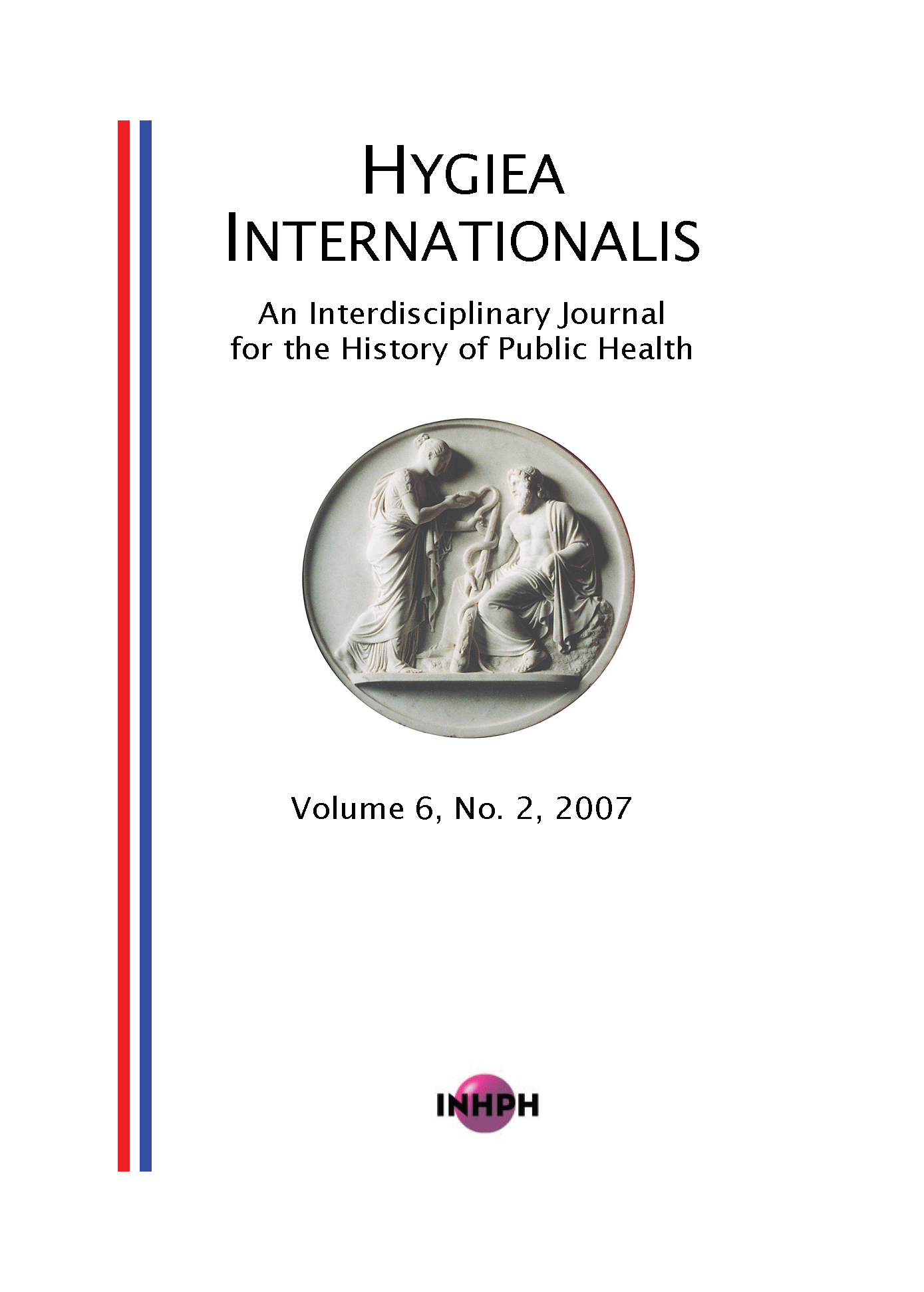Medicine as a Social Political Science
The Case of Spain c. 1920
DOI:
https://doi.org/10.3384/hygiea.1403-8668.077137Keywords:
Social Medicine, Eugenics, Political Crisis, Rhetoric, SpainAbstract
This paper discusses the Spanish contribution to the forming of Social Medicine, as a particular understanding of the relationship between health and society that eventually became a formal discipline, as a variant of Public Health. It focuses on two questions, first the literary tradition linking Social Sciences and Medicine, and the forming of the key concept of “social disease”; and, second, on the nature and aims of the inter-professional groups that championed this process. If during centuries, medical concepts had been used to explain social life, around the time of the First World War, doctors started to explain medical matters in social terms, in order to both reinforce their monopoly and offer a kind of solutions to social evils suited to the new professional middle classes. Massive programmes of prevention and care were applied as a receipt against severe social unrest, developing a trend of long lasting influence.Downloads
Published
2007-12-27
How to Cite
Rodríguez-Ocaña, E. (2007). Medicine as a Social Political Science: The Case of Spain c. 1920. Hygiea Internationalis: An Interdisciplinary Journal for the History of Public Health, 6(2), 37–52. https://doi.org/10.3384/hygiea.1403-8668.077137
Issue
Section
Articles
License
Copyright (c) 2007 the Author(s)

This work is licensed under a Creative Commons Attribution-NonCommercial 4.0 International License.






